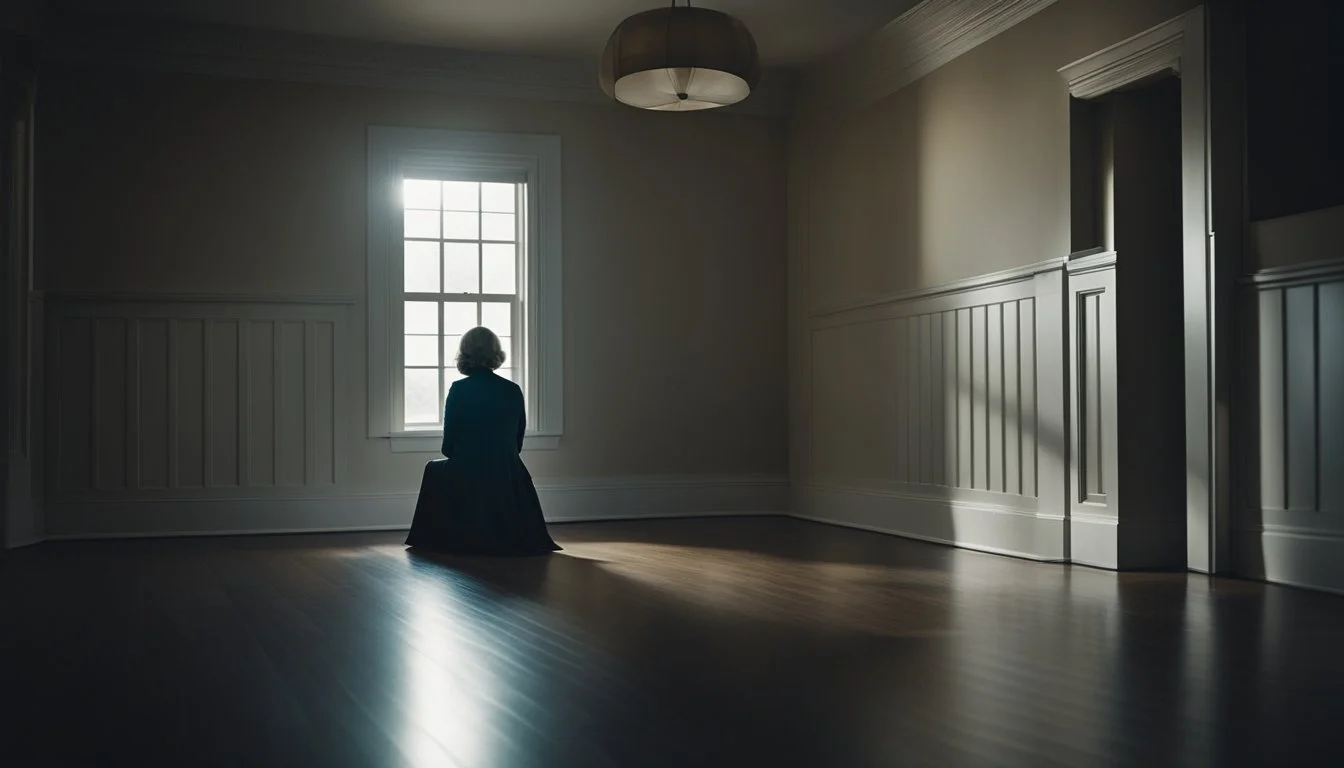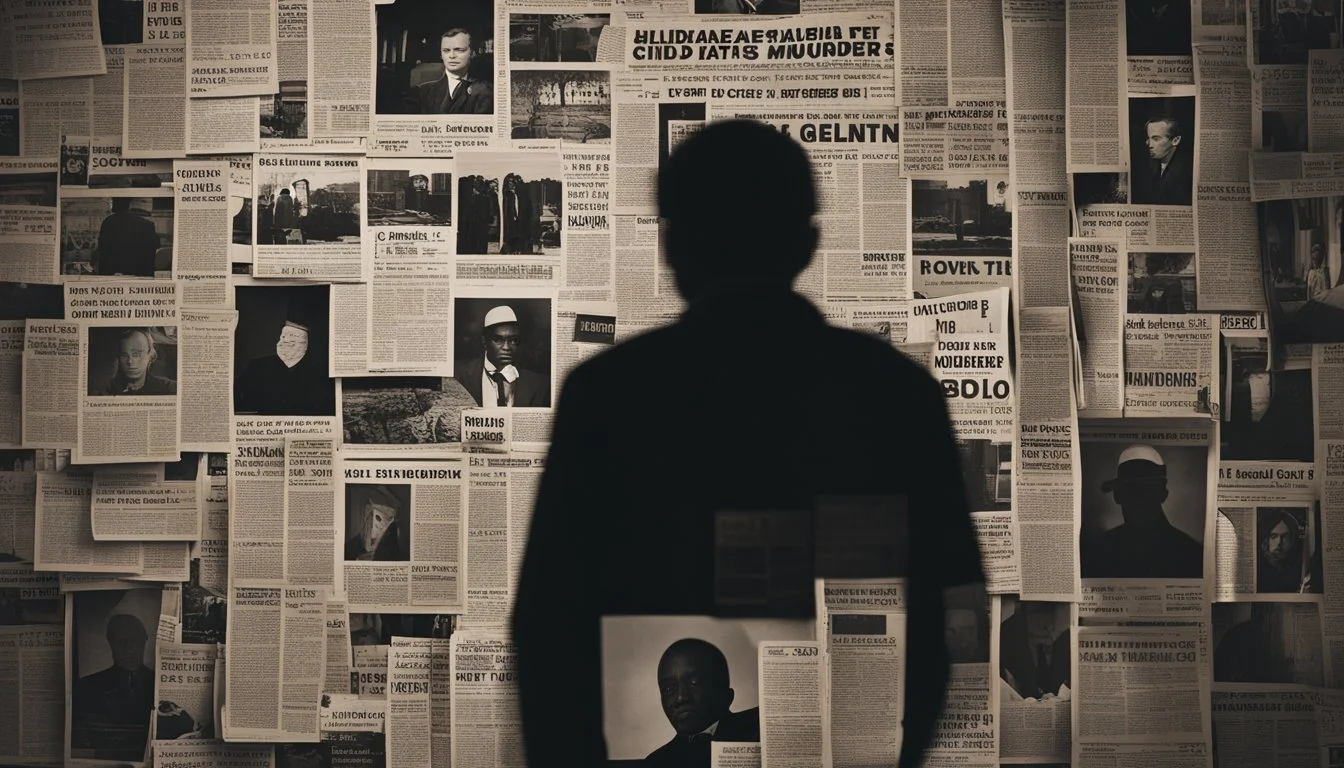Unearthing Atlanta's Darkest Chapter: Documentaries Revisit the Child Murders
The Atlanta child murders of 1979-1981 remain one of the most chilling and haunting crime sprees in American history. Over a two-year period, at least 28 African American children and young adults were killed, leaving a community devastated and a city in fear. This series of tragic events has captivated public interest for decades, spawning numerous books, films, and television programs.
Several compelling documentaries have explored the Atlanta child murders, shedding new light on the investigation and its aftermath. These films delve into the complex circumstances surrounding the killings, the arrest and conviction of Wayne Williams, and the lingering questions that continue to surround the case. Through interviews, archival footage, and expert analysis, these documentaries offer viewers a deeper understanding of this dark chapter in Atlanta's history.
1) ATLM: The Untold Story
ATLM: The Untold Story (2019) offers a fresh perspective on the Atlanta child murders. This documentary series delves into the tragic events that shook Atlanta between 1979 and 1981.
The series examines the deaths of 29 African American children and young adults. It provides a comprehensive look at the investigation and its aftermath, drawing on extensive archival footage and interviews.
ATLM explores the racial tensions and political climate of Atlanta during this period. It raises questions about the handling of the case and the conviction of Wayne Williams.
The documentary gives voice to the victims' families, many of whom still seek closure. It also features insights from law enforcement officials and journalists who covered the case.
ATLM: The Untold Story challenges viewers to reconsider the official narrative surrounding these murders. It highlights the impact of these events on Atlanta's Black community and the city as a whole.
More information on ATLM: The Untold Story
2) The Atlanta Child Murders: A Closer Look
"The Atlanta Child Murders" (2019) is a documentary mini-series that examines the tragic events that unfolded in Atlanta between 1979 and 1981. The series delves into the unsolved cases of 29 African American children and young adults who were murdered during this period.
The documentary features interviews with family members, investigators, and community leaders who were directly impacted by these crimes. It explores the fear and uncertainty that gripped Atlanta's black community during this time.
One of the key aspects of the series is its examination of the investigation and its controversial conclusion. Wayne Williams was arrested and convicted for two adult murders, but was never tried for the child killings.
The documentary also addresses the racial tensions that surrounded the case and the impact on the affected families. It raises questions about whether justice was truly served and if the real killer was ever caught.
By presenting multiple perspectives and theories, "The Atlanta Child Murders" offers viewers a comprehensive look at this dark chapter in Atlanta's history. It serves as both a memorial to the victims and a critical examination of the investigation.
3) Murder in the Pines: Atlanta's Dark Past
"Murder in the Pines: Atlanta's Dark Past" (2020) is a documentary that explores the Atlanta Child Murders case. The film delves into the investigation of the killings that occurred between 1979 and 1981.
It examines the impact on Atlanta's African American community and the lasting effects of these tragic events. The documentary features interviews with family members of victims and law enforcement officials involved in the case.
The film also discusses the arrest and conviction of Wayne Williams, while exploring theories about other potential suspects. It raises questions about the thoroughness of the original investigation and the possibility of unresolved cases.
"Murder in the Pines" provides a detailed look at the social and political context of Atlanta during this period. It examines how race relations and poverty may have influenced the investigation and media coverage.
The documentary uses archival footage and reenactments to bring the events to life. It offers viewers a comprehensive overview of this dark chapter in Atlanta's history.
4) Innocence Lost: The Atlanta Murders
"Innocence Lost: The Atlanta Murders" (1985) is a made-for-television documentary that examines the Atlanta Child Murders case. The film focuses on the victims and their families, providing a poignant look at the impact of these tragic events on the community.
The documentary features interviews with parents of the murdered children, offering personal insights into their loss and grief. It also includes footage of the investigation and manhunt that gripped Atlanta during this period.
Directed by Robert Markowitz, the film takes a critical look at the handling of the case by law enforcement. It raises questions about the thoroughness of the investigation and the racial dynamics at play in Atlanta at the time.
"Innocence Lost" provides a comprehensive overview of the events, from the first disappearances in 1979 to the arrest of Wayne Williams in 1981. The film explores the fear and tension that permeated Atlanta's African American community during this two-year period.
5) Unseen Evil: The Atlanta Crimes
"Unseen Evil: The Atlanta Crimes" examines the Atlanta Child Murders that occurred between 1979 and 1981. This documentary focuses on the investigation and its impact on the community.
The film explores the case where at least 29 African American children and young adults were killed in Atlanta. It presents interviews with investigators, family members, and community leaders involved in the events.
"Unseen Evil" analyzes the evidence and theories surrounding the murders. It discusses the arrest and conviction of Wayne Williams, while also considering alternative suspects and explanations.
The documentary highlights the racial tensions and socioeconomic factors that influenced the case. It examines how these elements affected the investigation and public perception of the crimes.
Through archival footage and expert commentary, "Unseen Evil" provides a comprehensive look at this tragic chapter in Atlanta's history. It raises questions about the handling of the case and its lasting effects on the victims' families and the city.
More information about the Atlanta Child Murders
6) Justice Delayed: Inside the Atlanta Cases
"Justice Delayed: Inside the Atlanta Cases" (2010) examines the lingering questions surrounding the Atlanta Child Murders. This documentary explores the complexities of the investigation and subsequent trials.
The film features interviews with key figures involved in the cases, including law enforcement officials, family members of victims, and legal experts. It sheds light on the racial tensions that pervaded Atlanta during the time of the murders.
"Justice Delayed" scrutinizes the evidence against Wayne Williams, the man convicted of two adult murders and linked to many of the child killings. The documentary presents alternative theories and potential suspects that were not fully investigated at the time.
The film also highlights the impact of these unsolved cases on the affected families and the broader Atlanta community. It explores how the passage of time has affected the pursuit of justice and closure for those involved.
More information on "Justice Delayed: Inside the Atlanta Cases"
7) Voices Silenced: The Murders of Atlanta's Youth
The Atlanta Child Murders shook the city's African-American community from 1979 to 1981. At least 30 children and young adults disappeared or were found murdered during this period.
HBO's documentary series "Atlanta's Missing and Murdered: The Lost Children" (2020) explores this tragic chapter in Atlanta's history. The five-part series offers an in-depth look at the cases and their impact on the community.
The documentary examines the investigation, which led to the conviction of Wayne Williams. It also raises questions about whether Williams was solely responsible for all the murders.
"Atlanta's Missing and Murdered" features interviews with victims' families, law enforcement officials, and journalists who covered the case. It sheds light on the racial tensions and socioeconomic factors that influenced the investigation.
The series also covers the recent reopening of the case by Atlanta Mayor Keisha Lance Bottoms. This development has brought renewed attention to the unsolved aspects of the murders.
More information on HBO's "Atlanta's Missing and Murdered: The Lost Children" (2020)
8) Shadows of the City: Atlanta's Dark Secrets
The Atlanta child murders cast a long shadow over the city. Several documentaries explore the dark underbelly of Atlanta during this turbulent period.
"The Atlanta Child Murders" (1985) examines the fear and suspicion that gripped the community. It features interviews with victims' families and law enforcement officials involved in the case. More info
"Who Killed Atlanta's Children?" (2000) investigates alternative theories about the murders. The film questions whether Wayne Williams was truly responsible for all the crimes attributed to him. More info
"The Atlanta Child Murders" (2010) by CNN provides a comprehensive overview of the case. It includes archival footage and new interviews with key figures involved in the investigation. More info
These documentaries shed light on the racial tensions and socioeconomic factors that contributed to the tragedy. They explore how the murders exposed deep-seated issues within Atlanta's society and law enforcement.
By examining this dark chapter in Atlanta's history, these films prompt viewers to confront uncomfortable truths about systemic inequalities and the lasting impact of unsolved crimes on communities.
9) A Mother's Grief: The Atlanta Child Murders
The Atlanta Child Murders documentary series explores the profound impact on families, particularly mothers, who lost their children during this tragic period. Between 1979 and 1981, at least 29 African American children and young adults were killed in Atlanta, leaving a community in fear and grief.
HBO's "Atlanta's Missing and Murdered: The Lost Children" (2020) features interviews with bereaved mothers, showcasing their enduring pain decades after the crimes. These women share heart-wrenching stories of their lost children and their ongoing search for closure.
The series highlights how mothers like Venus Taylor, whose daughter Angel was among the victims, became vocal advocates for justice. Their testimonies provide a deeply personal perspective on the crimes' long-lasting effects on families and the wider Atlanta community.
Documentaries like these give voice to the mothers' continued quest for answers and their frustration with the handling of the cases. They reveal the strength of these women in the face of unimaginable loss and their determination to keep their children's memories alive.
Link to HBO documentary information
10) Secrets in the South: The Atlanta Tragedy
Secrets in the South: The Atlanta Tragedy (2020) is a documentary that examines the Atlanta child murders case. It provides a detailed look at the events that unfolded between 1979 and 1981 in Atlanta, Georgia.
The film explores the investigation into the killings of at least 29 African American children and young adults. It includes interviews with law enforcement officials, family members of victims, and community leaders.
Secrets in the South delves into the arrest and conviction of Wayne Williams, who was found guilty of two adult murders. The documentary raises questions about whether Williams was responsible for all the child killings.
The film also addresses the racial tensions and socioeconomic factors that impacted the case. It highlights the fear and distrust that gripped Atlanta's Black community during this period.
More information on the Atlanta child murders
Historical Context
Atlanta experienced significant social and economic changes in the late 1970s, setting the stage for the tragic child murders. The city grappled with rising crime rates and racial tensions during this period.
Overview of Atlanta During the Late 1970s
Atlanta's population grew rapidly in the 1970s, reaching over 425,000 by 1980. The city elected its first African American mayor, Maynard Jackson, in 1973. This marked a shift in political power and representation.
Economic growth brought new opportunities, but benefits were not equally distributed. Many low-income neighborhoods faced poverty and lack of resources. Urban renewal projects displaced some communities, contributing to social upheaval.
The city worked to shed its reputation for racial segregation. Integration efforts progressed, but disparities persisted in housing, education, and employment.
Crime Rates and Social Climate
Violent crime increased significantly in Atlanta during the late 1970s. The homicide rate nearly doubled between 1975 and 1979. Drug-related offenses also rose sharply.
Fear and distrust grew among residents, particularly in low-income areas most affected by crime. Police-community relations were often strained, especially in African American neighborhoods.
Youth faced heightened risks. Gang activity expanded, and child safety became a major concern. The disappearances and murders of young African Americans between 1979-1981 intensified existing anxieties.
Media coverage of crime contributed to public unease. The child murders drew national attention, putting Atlanta under intense scrutiny.
The Investigations
The Atlanta child murders spurred extensive investigations involving local and federal law enforcement. Media coverage played a crucial role in shaping public perception and awareness of the cases.
Law Enforcement Involvement
The Atlanta Police Department led the initial investigations into the child murders. As the number of victims grew, the FBI joined the effort in 1980. Task forces were formed to coordinate resources and information.
Investigators employed various techniques, including surveillance, interviews, and forensic analysis. They faced challenges due to the lack of physical evidence at many crime scenes.
Wayne Williams emerged as a prime suspect in 1981. Police surveillance teams observed him near a bridge where a body was later discovered. This led to his arrest and subsequent conviction for two adult murders.
Some investigators believed Williams was responsible for most, if not all, of the child murders. Others questioned this conclusion, citing inconsistencies in evidence and modus operandi.
Media Coverage
Local and national media outlets extensively covered the Atlanta child murders. News reports heightened public awareness and fear, particularly within Atlanta's African American communities.
Television broadcasts and newspaper articles detailed the ongoing investigations and profiled victims. The media attention helped generate tips and leads for law enforcement.
Some criticized the initial lack of coverage, suggesting racial bias in reporting. As the case gained national attention, pressure mounted on authorities to solve the crimes quickly.
Documentaries and TV specials later revisited the cases, exploring unanswered questions and alternative theories. These productions often featured interviews with investigators, victims' families, and community members affected by the murders.
Impact and Legacy
The Atlanta child murders left an indelible mark on the city and sparked changes in law enforcement and child protection policies. The tragic events reshaped community dynamics and public safety approaches.
Effect on Atlanta's Community
The murders deeply traumatized Atlanta's African American community. Parents lived in constant fear for their children's safety. Many families imposed strict curfews and supervision rules. The killings strained race relations and eroded trust between citizens and law enforcement.
Community organizations mobilized to protect children and support grieving families. Neighborhood watch groups formed, and volunteers patrolled streets. The tragedy brought national attention to Atlanta, tarnishing its image as a progressive Southern city.
Long-term psychological impacts lingered for survivors, victims' families, and the broader community. The unresolved nature of many cases left wounds that never fully healed.
Changes in Law and Policy
The murders exposed weaknesses in law enforcement practices and child protection systems. In response, Atlanta police improved missing persons protocols and inter-agency coordination. The city established a dedicated missing children's unit.
At the national level, the case spurred the creation of new resources for finding missing children:
National Center for Missing and Exploited Children (1984)
FBI's National Crime Information Center missing persons file
AMBER Alert system (implemented in 1990s)
Child safety education expanded in schools. New laws strengthened penalties for crimes against children. The case highlighted the need for better forensic technology and evidence handling procedures.
These policy changes aimed to prevent similar tragedies and improve responses to missing children cases across the United States.








